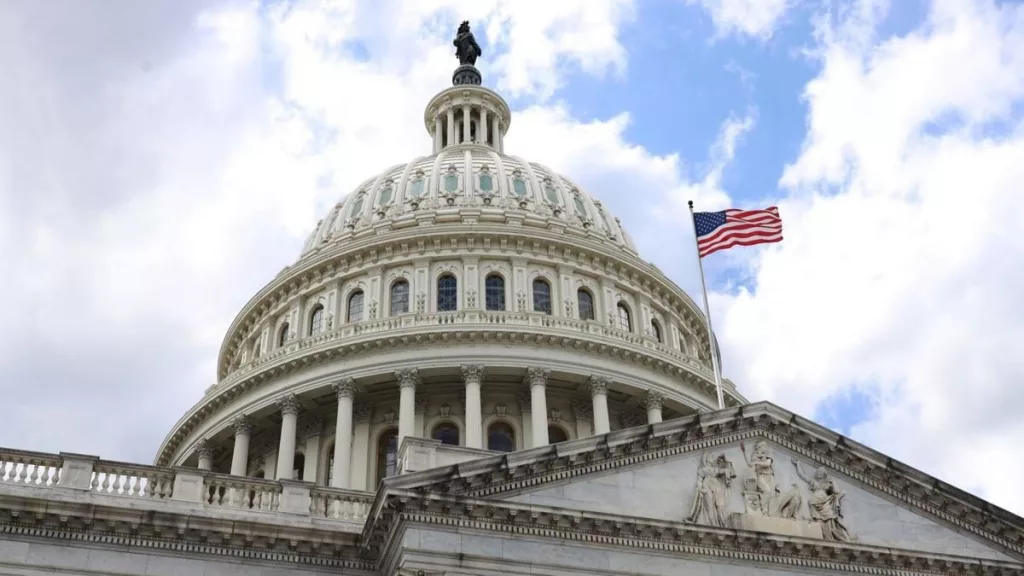WASHINGTON, D.C. — Moody’s knocked down the U.S. credit rating to AA1 on Friday, projecting Congress won’t be able to reduce the nation’s growing debt.
Moody’s was the last credit-rating agency to keep the U.S. at a top AAA rating. That changed Friday, with Moody’s joining S&P Global and Fitch on the lower rating. Fitch Ratings downgraded the U.S. in 2023 and S&P Global Ratings did so 2011.
Moody’s said it didn’t see any budget proposals that would address the country’s more than two decades of spending more money than it takes in.
“Successive U.S. administrations and Congress have failed to agree on measures to reverse the trend of large annual fiscal deficits and growing interest costs,” Moody’s wrote in a statement.
It expects Congressional policies to move the nation in the wrong direction.
“We do not believe that material multi-year reductions in mandatory spending and deficits will result from current fiscal proposals under consideration,” Moody’s said. “Over the next decade, we expect larger deficits as entitlement spending rises while government revenue remains broadly flat.”
Those deficits will add to the nation’s $36.2 trillion in debt.
“Persistent, large fiscal deficits will drive the government’s debt and interest burden higher,” Moody’s noted. “The US’ fiscal performance is likely to deteriorate relative to its own past and compared to other highly-rated sovereigns.”
The U.S. has been able to run deficits in part because most people believe it can afford to do so.
“While we recognize the US’ significant economic and financial strengths, we believe these no longer fully counterbalance the decline in fiscal metrics,” Moody’s noted.
The agency wasn’t optimistic, but kept the rating outlook stable.
“Over more than a decade, U.S. federal debt has risen sharply due to continuous fiscal deficits. During that time, federal spending has increased while tax cuts have reduced government revenues. As deficits and debt have grown, and interest rates have risen, interest payments on government debt have increased markedly,” Moody’s noted.
“Without adjustments to taxation and spending, we expect budget flexibility to remain limited, with mandatory spending, including interest expense, projected to rise to around 78% of total spending by 2035 from about 73% in 2024. If the 2017 Tax Cuts and Jobs Act is extended, which is our base case, it will add around $4 trillion to the federal fiscal primary (excluding interest payments) deficit over the next decade.”
Maya MacGuineas, president of the Committee for a Responsible Federal Budget, said Congress must change course while it has time.
“Today Moody’s looked at what Congress is proposing and determined that it would make things even worse, to the point of questioning our ability to get our borrowing under control,” MacGuineas said. “Congress, take note: stop what you’re doing, step away from the ledge, and start working on a way out of this mess.”
Michael A. Peterson, CEO of the Peter G. Peterson Foundation, said Moody’s move should serve as a wake-up call.
“For those looking for a signpost to tell us when to stop adding to our national debt, they should look no further than Moody’s downgrade,” he said. “It’s unacceptable for a great country like America to harm its own credit rating. We have plenty of options on the table to fix this, and it can be done quickly, with leadership.”
The downgrade comes after House Budget Committee lawmakers left for the weekend without advancing a budget reconciliation package The move delays House Speaker Mike Johnson’s plans to have a GOP megabill reach the floor by early next week. That giant reconciliation bill would permanently extend Trump’s 2017 tax cuts and cost anywhere from $3.3 trillion to $4.1 trillion over the next decade alone.
Congress has run a deficit every year since 2001.
Earlier this month, Treasury Secretary Scott Bessent said the U.S. would not default on its obligations.





